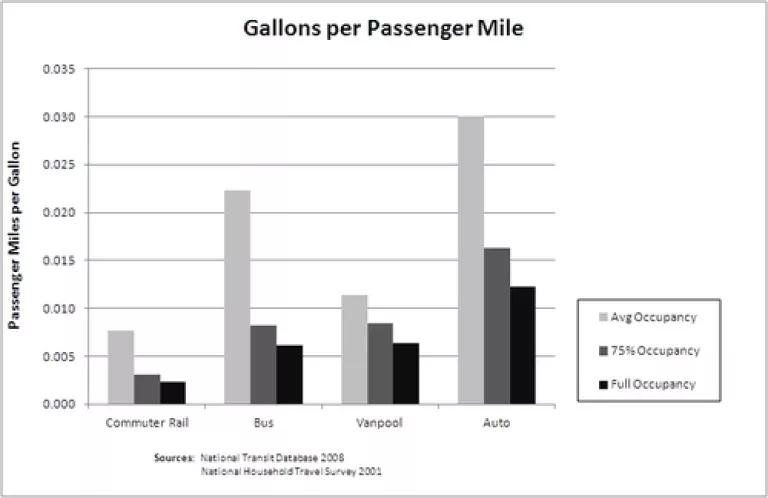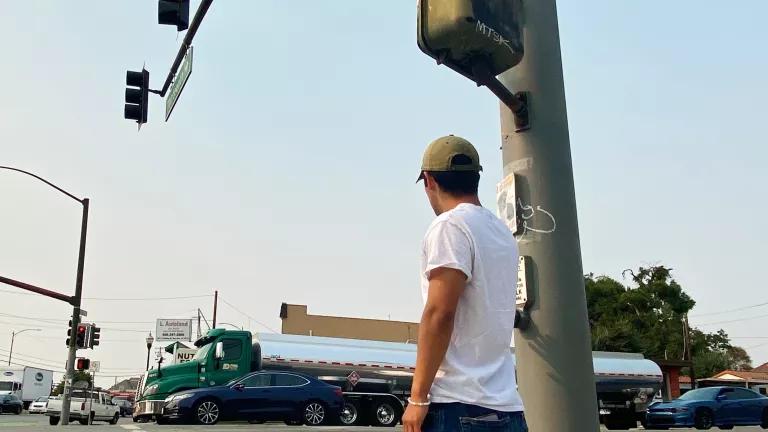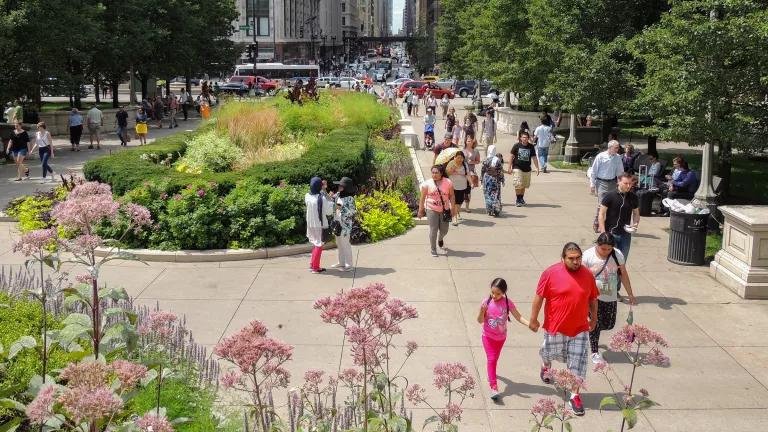The Obama administration has taken historic strides to reduce America's dependence on oil, most notably by raising automobile fuel standards to 54.5 miles-per-gallon last year. Considering that the transportation sector consumes a whopping 71% of petroleum in the U.S., clean cars are a must. More recently, President Obama proposed another way to wean the country off fossil fuels by creating an Energy Security Trust Fund, pumping $2 billion ($200 million a year over a decade) into research into technologies that would power Americans’ cars without oil -- funded with oil and gas drilling revenues.
But Americans for Transit raised a good point about all this:
"Focusing the trust’s investment solely on clean fuels ignores the fact that riding public transportation – buses, subways, light trains and ridesharing – is the most effective way to promote a cleaner and safer environment.”
Earlier this week I was on a panel discussion at the "Good Jobs, Green Jobs" conference focusing on transit. I noted that public opinion polling consistently shows strong support for public transportation. Transit is one of the most effective tools to reduce carbon emissions -- for example, each bus takes 35 cars off the road. For every mile traveled on public transit, riders produce 95 percent less carbon dioxide than driving.
And to the point above about oil dependence, at current levels of usage, transit already reduces U.S. gasoline consumption by 1.4 billion gallons each year. That means:
- 108 million fewer cars filling up – almost 300,000 every day
- 34 fewer supertankers leaving the Middle East
- 140,000+ fewer tanker truck deliveries to service stations per year
- a savings of 3.9 million gallons of gasoline per day
All the more reason why clean transportation -- not just clean cars and clean fuels -- should be a major component of federal efforts to reduce America's oil addiction. Here's a handy chart bringing the point home.

Yet another benefit of public transportation is congestion relief, or as we say at NRDC: more choices, less traffic. Simply put, providing people with more transportation options will reduce the need for so many people to drive or for people to drive so much.
There is a fallacy to overcome here, namely the "fundamental law of road congestion," which suggests that transit fails to relieve traffic because latent demand for road space is so great. Not so, according to new research which finds that "the net benefits of transit" on traffic is "much larger than previously believed." The author of the study, Berkley scholar Michael Anderson, put it this way:
"The intuition is straightforward: Transit is most attractive to commuters who face the worst congestion, so a disproportionate number of transit riders are commuters who would otherwise have to drive on the most congested roads at the most congested times. Since drivers on heavily congested roads have a much higher marginal impact on congestion than drivers on the average road, transit has a large impact on reducing traffic congestion."
Anderson's work also shows the economic benefit of public transit, estimating that the congestion relief provided by public transportation in Los Angeles, for example, ranges between $1.2 billion and $4.1 billion per year. Therefore, the considerable economic gains justify the significant cost of constructing transit systems. As Anderson concludes:
Contrary to the conclusions in the existing transportation and urban economics literature, the congestion relief benefits alone may justify transit infrastructure investments.
Anderson's analysis comports with public sentiment, as evidenced by NRDC's poll last year which asked: "In order to reduce traffic congestion and provide more transportation choices, would you support or oppose local governments in your area investing more to expand and improve public transportation, including buses, trains, and light rail?"
A total of 68% of respondents expressed support (39% strongly so), while only 25% opposed it.
Publc transportation: a worthwhile investment to reduce climate pollution, oil dependence and traffic congestion!




